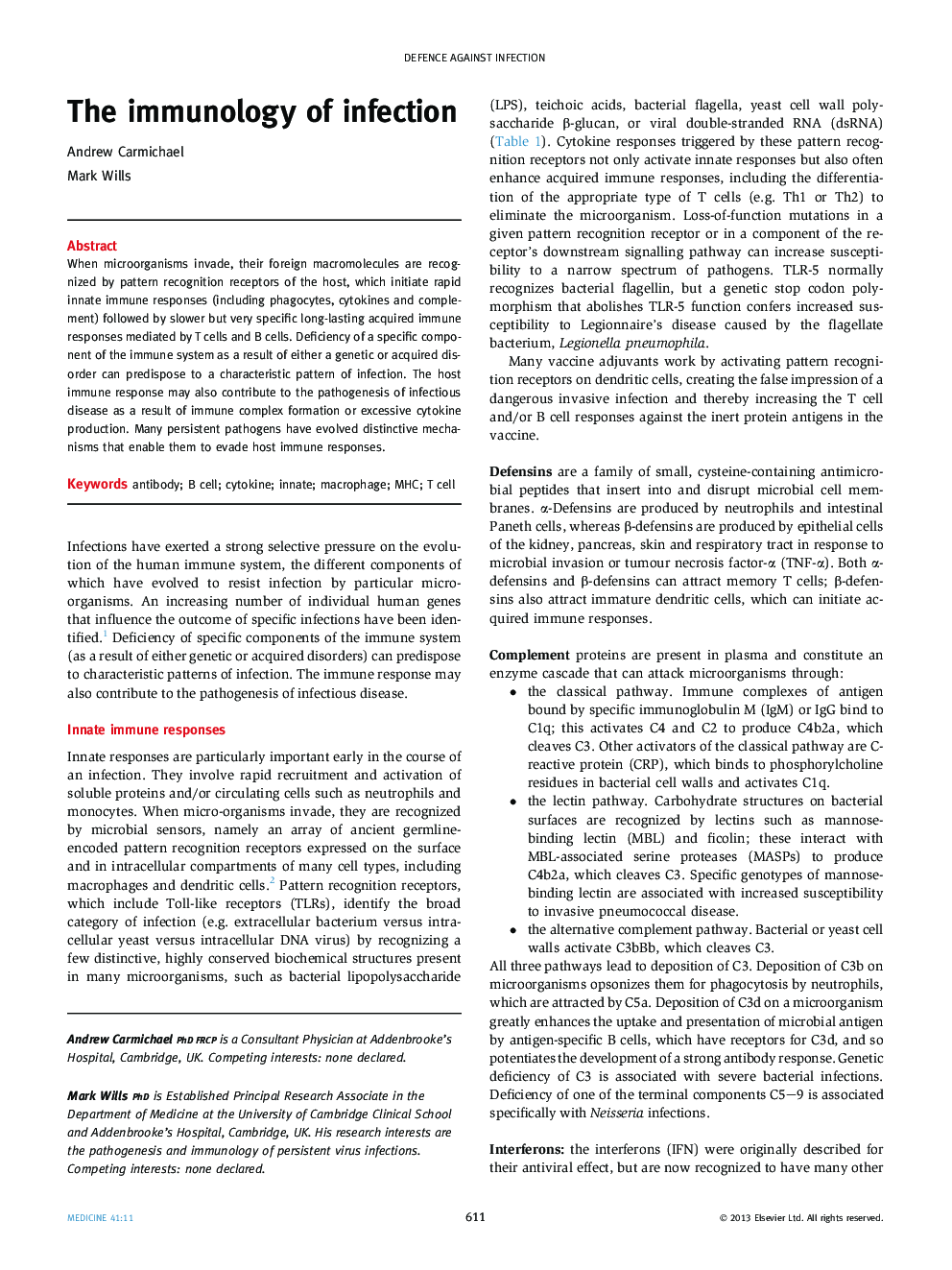| Article ID | Journal | Published Year | Pages | File Type |
|---|---|---|---|---|
| 3806754 | Medicine | 2013 | 8 Pages |
When microorganisms invade, their foreign macromolecules are recognized by pattern recognition receptors of the host, which initiate rapid innate immune responses (including phagocytes, cytokines and complement) followed by slower but very specific long-lasting acquired immune responses mediated by T cells and B cells. Deficiency of a specific component of the immune system as a result of either a genetic or acquired disorder can predispose to a characteristic pattern of infection. The host immune response may also contribute to the pathogenesis of infectious disease as a result of immune complex formation or excessive cytokine production. Many persistent pathogens have evolved distinctive mechanisms that enable them to evade host immune responses.
